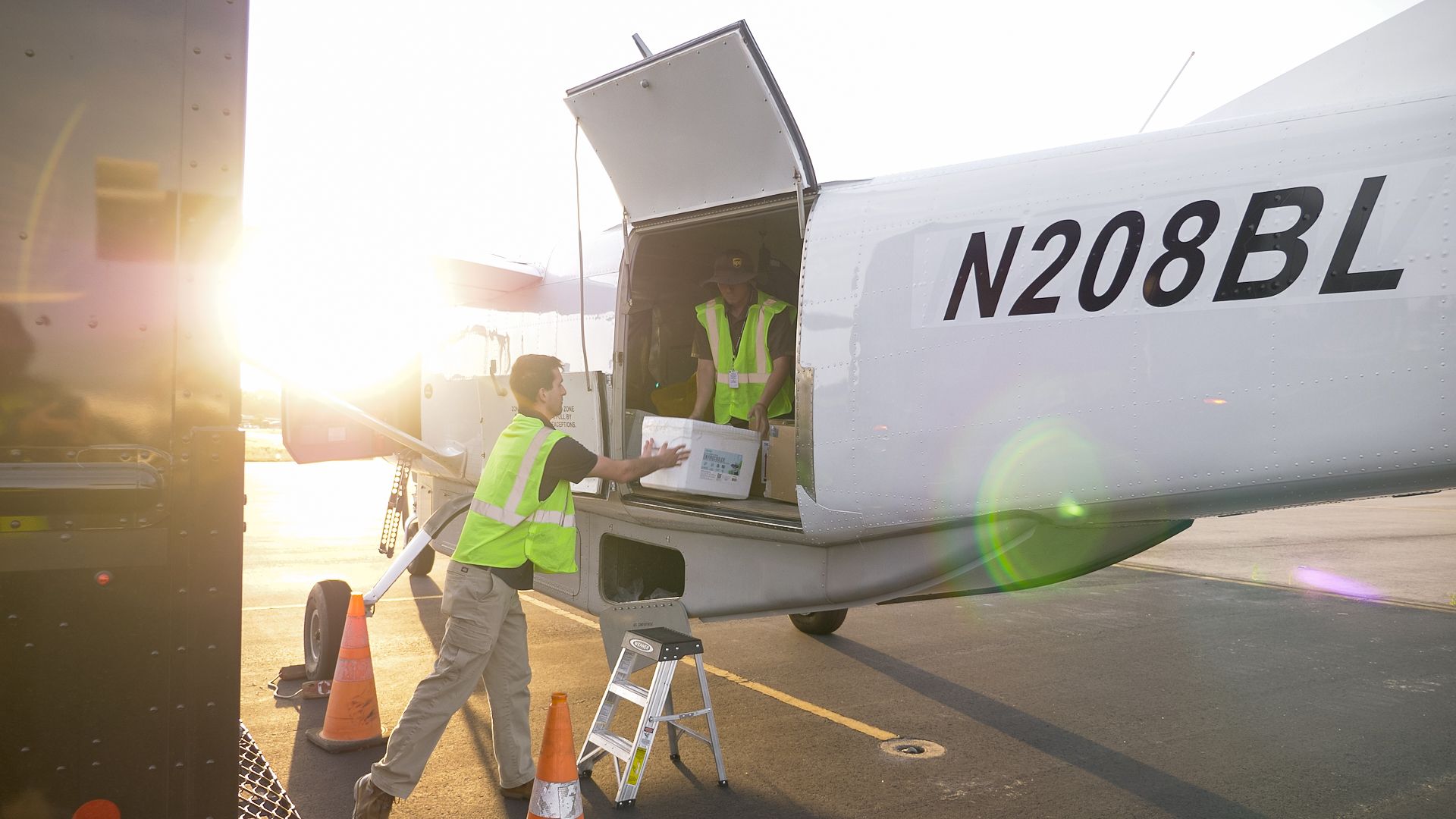Xwing, the first company to introduce autonomous flight technology to regional air cargo services, continues to expand its operations and workforce on its path to obtaining certifications to revolutionize the world of automated air services.
A continuous growth
Xwing is pursuing a continued growth strategy to obtain the FAA certifications required to roll out its autonomous flight technology. The company has indeed completed the acquisition of Martinaire Aviation, a Texas-based cargo carrier with 40 years of experience in the US air cargo market. This successful acquisition follows the earlier purchase of AirPac airlines, a feeder cargo company based in the Pacific Northwest.
The addition of Martinaire to Xwing now makes the latter one of the largest operator of Cessna 208B in the cargo feeder market, with a total fleet of 35 aircraft used to operate up to 400 weekly flights. After starting operations from Phoenix in 2020 with a network of two routes, Xwing now flies to 54 airports in 14 US states. So far, the airline has completed 10,000 flights, carrying 4.9 million pounds (2.2 million kg) of cargo and flying for 1 million miles (1.6 million km). All flights have been operated within the regional air cargo network of the global logistics provider UPS (United Parcel Service).
Xwing's strategy
What is the "final destination" of this continuous expansion strategy? The aim of the air cargo operator is to obtain the FAA regulatory approvals needed to operate autonomous flight operations.
Besides the Part 135 Air Carrier Certificate, Xwing now also operates two Part 145 certified aircraft maintenance facilities. This diversification strategy enables the carrier to further expand its portfolio of capabilities beyond flight operations to include maintenance, inspection, and aircraft modification services.
Xwing CEO and founder, Marc Piette, commented on the importance of progressively expanding cargo operations:
Our commercial cargo operations are key to our certification approach. When it comes to integrating unmanned aircraft in the airspace, the FAA operational approvals are just as important as certification of the technology on board the aircraft.
Consequently, for Xwing to achieve its mission, it is fundamental to firstly build strong expertise in the operation of commercial air cargo services. Indeed, operating flights is essential to retrieve data from the routes, which are then intensively used to continuously refine and optimize the company's autonomous flight system, thus developing the best solution possible for Xwing customers.
Why do we need automated regional air cargo services in the first place?
Xwing rationale behind its mission stems from the underutilization of regional and smaller airports in vast areas of the United States. Indeed, the objective of the company is to allow urgent requests in underserved or remote locations to be efficiently satisfied, without the need to find or wait for personnel who can rather focus on regular airline operations.
Stay informed: Sign up for our daily and weekly aviation news digests.
What's next?
For the time being, pilots are flying unmodified Cessna Caravan under the company's Part 135 Certificate. However, with the progressive sharpening of capabilities across all areas of air cargo, the company aims to speed up the rollout of the autonomous flight technology once it has been certified by the FAA.
Xwing's mission will be accomplished when the company will be authorized to offer fully autonomous gate-to-gate capabilities, including automated taxiing on the runway. But which advantages do automated air cargo flights bring about? First, the company names improved routings from airport A to airport B, which consequently implies fuel savings. Furthermore, automation in this field will also envisage enhanced loading and unloading operations. Furthermore, the firm is also working towards the expansion of its automated flying technology to include other areas of commercial aviation besides the cargo market, including passenger air mobility.
So far, Xwing's innovative strategy has been recognized by several institutions. For instance, the company has been listed in the Fast Company's World Changing Ideas within the transport category. Moreover, an ex-FAA executive, Earl Lawrence, was appointed to the company's c-suite to help lead Xwing towards its certifications.
Simple Flying reached out to Xwing for further comment. We will update the article with any additional announcements from the airline.
What do you think of automated commercial air cargo services? Let us know by leaving a comment below!

.jpg)

.png)